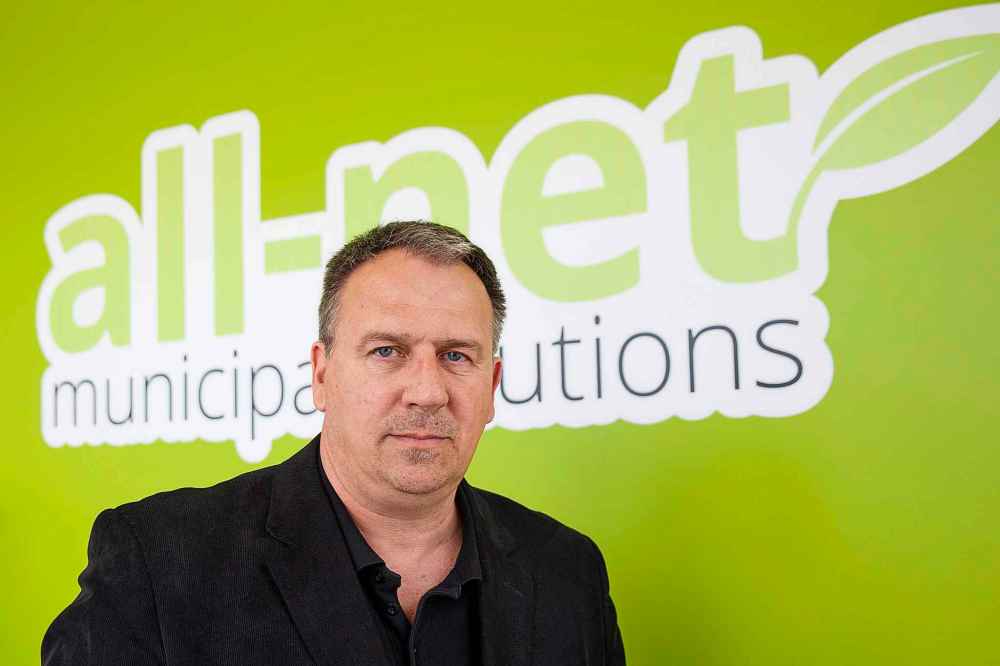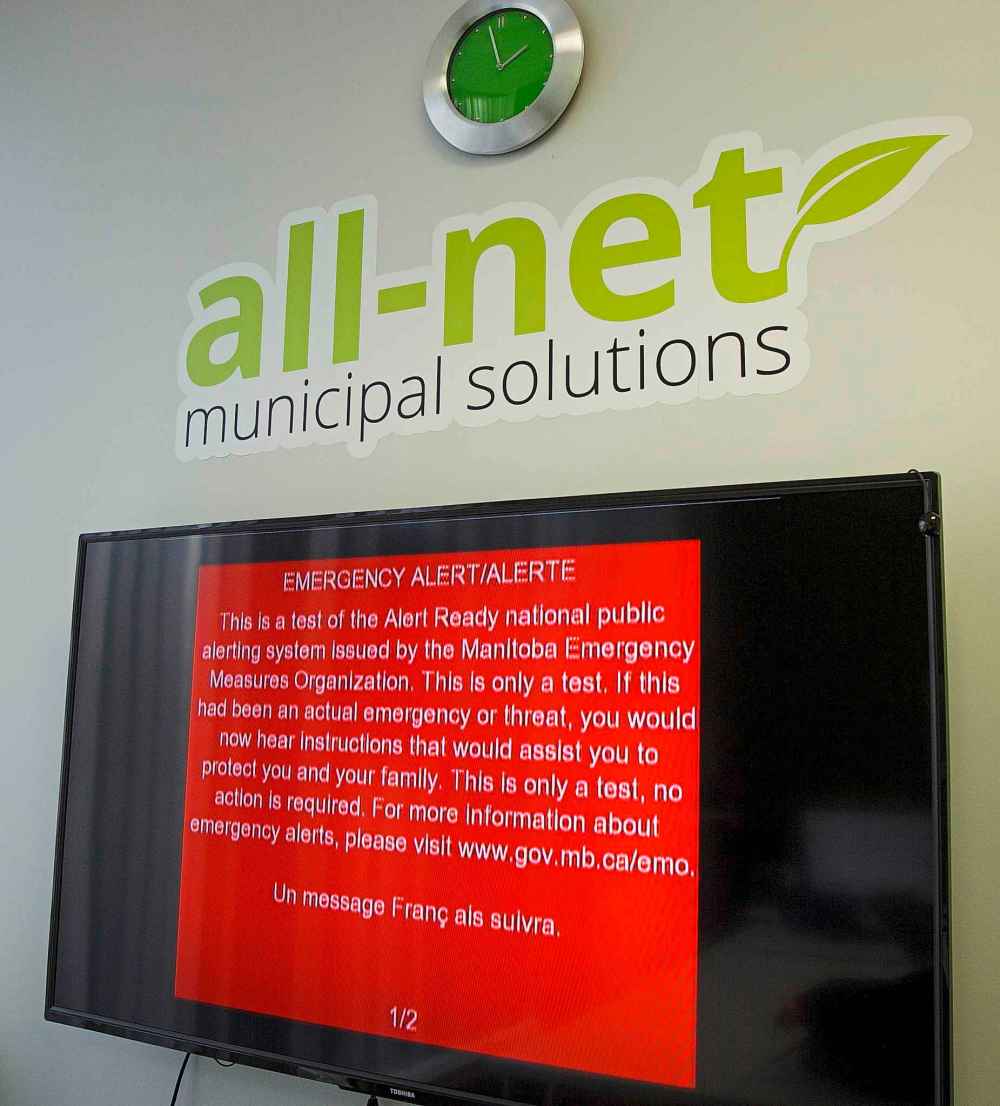New emergency alert software takes aim at Manitoba’s rural municipalities
Read this article for free:
or
Already have an account? Log in here »
To continue reading, please subscribe:
Monthly Digital Subscription
$0 for the first 4 weeks*
- Enjoy unlimited reading on winnipegfreepress.com
- Read the E-Edition, our digital replica newspaper
- Access News Break, our award-winning app
- Play interactive puzzles
*No charge for 4 weeks then price increases to the regular rate of $19.00 plus GST every four weeks. Offer available to new and qualified returning subscribers only. Cancel any time.
Monthly Digital Subscription
$4.75/week*
- Enjoy unlimited reading on winnipegfreepress.com
- Read the E-Edition, our digital replica newspaper
- Access News Break, our award-winning app
- Play interactive puzzles
*Billed as $19 plus GST every four weeks. Cancel any time.
To continue reading, please subscribe:
Add Free Press access to your Brandon Sun subscription for only an additional
$1 for the first 4 weeks*
*Your next subscription payment will increase by $1.00 and you will be charged $16.99 plus GST for four weeks. After four weeks, your payment will increase to $23.99 plus GST every four weeks.
Read unlimited articles for free today:
or
Already have an account? Log in here »
Hey there, time traveller!
This article was published 08/05/2019 (2411 days ago), so information in it may no longer be current.
Vern Sabeski says it was “a punch in the gut” when he heard about the 77-year-old man killed by a tornado in Alonsa last summer after the alert system failed.
It was a punch in the gut because Sabeski’s company, All-Net.ca, had just started rolling out new software for Manitoba rural municipalities that might have saved Jack Furrie’s life.
Alert Ready, Canada’s emergency alerting system, had sent out emergency text messages last year to people in the Alonsa area warning about the tornado.

The problem was the cell phone coverage was so shoddy, as it is in many rural places, that many people didn’t get the alert, including Furrie.
Sabeski’s software ensures an emergency text message goes not just to a person’s cell phone but to their land phones, too, if the person wishes, improving chances that an alert will reach more people, particularly in rural areas.
“You just want to turn the clock back,” Sabeski said.
Alert Ready System, Canada’s emergency alerting system, got a nation-wide test at 1:55 p.m. on Wednesday but integrating with emergency alerts is only the start of what All-Net’s software, called “Connect,” can do.
About 25 RMs in Manitoba have installed Connect and use it regularly to communicate with residents on everything from weekly recreation notices to garbage day changes to alerts about road washouts.
Residents can go online and choose the type of notices they want to receive and how they want to receive them: by email, text message, or land phone, or any combination of the above. The system leaves a voice message on land phones if no one answers.
“We now live in a world where different generations are all communicating on different mediums. ‘Connect’ enables a municipal government to get to everyone on all mediums,” Sabeski said.
The RM or Ritchot, located along Winnipeg’s south border, was one of the first communities to take up the service.
“I cannot stress enough how important it is to have this tool,” said Ritchot Mayor Chris Ewen.
“I know all our residents love it because it warns and alerts them or creates an opportunity for them to know about anything from local events happening, all the way to if there’s a public works or utility concern, like shutting off the watermain for a couple of hours.”

You can even choose to receive the RM’s economic development news or water notices. On a lighter note, the RM was recently holding a food preparation workshop and “we weren’t getting anyone to sign up. We put it on Connect and sold out in two hours,” Ewen said.
The RM expected the system to get a workout this spring when the Red River threatened a flood. Ritchot planned to use the Connect software to give notice about such things as road closures due to flooding, sandbag availability, and even evacuations.
“We could pinpoint to the Howden area that has frequent flooding issues and say the community hall in Howden will have sandbags on this day, and pinpoint the homes that need those sandbags,” Ewen said.
“I’m so thankful we didn’t have to do that,” he added.
About 20 per cent of Ritchot residents are signed up so far and Ewen expects that’s just a start.
The All-Net firm has been around for almost two decades and mainly seeks software solutions for rural municipalities. It started in Stonewall but is now based in Winnipeg.
The Connect system doesn’t just help people with spotty cell phone coverage but people who don’t own cell phones, Sabeski said.
“We still have a large segment of our population that relies on landline phones. The elderly, for example, like my parents, who don’t have a cell phone,” he said.
The software also allows the RM to pinpoint those constituents for whom certain information is pertinent.

In the event of an emergency, a municipality with Connect can override personal settings and send out messages to everyone on all mediums including text, email, voice calls, and social media.
“If you look at the way the world is changing, you see more and more a need for local government to get information out to people,” Sabeski said.
All-Net also has other municipal software programs like All-Net Meetings, a software for sharing information, agenda packages, documents, etc. between administrative and elected officials.
Another program is called Service Tracker for accepting, tracking and managing public service requests and work orders by local governments.
“Anything related to communication from a municipal perspective, that’s kind of where we live,” Sabeski said.
bill.redekop@freepress.mb.ca








